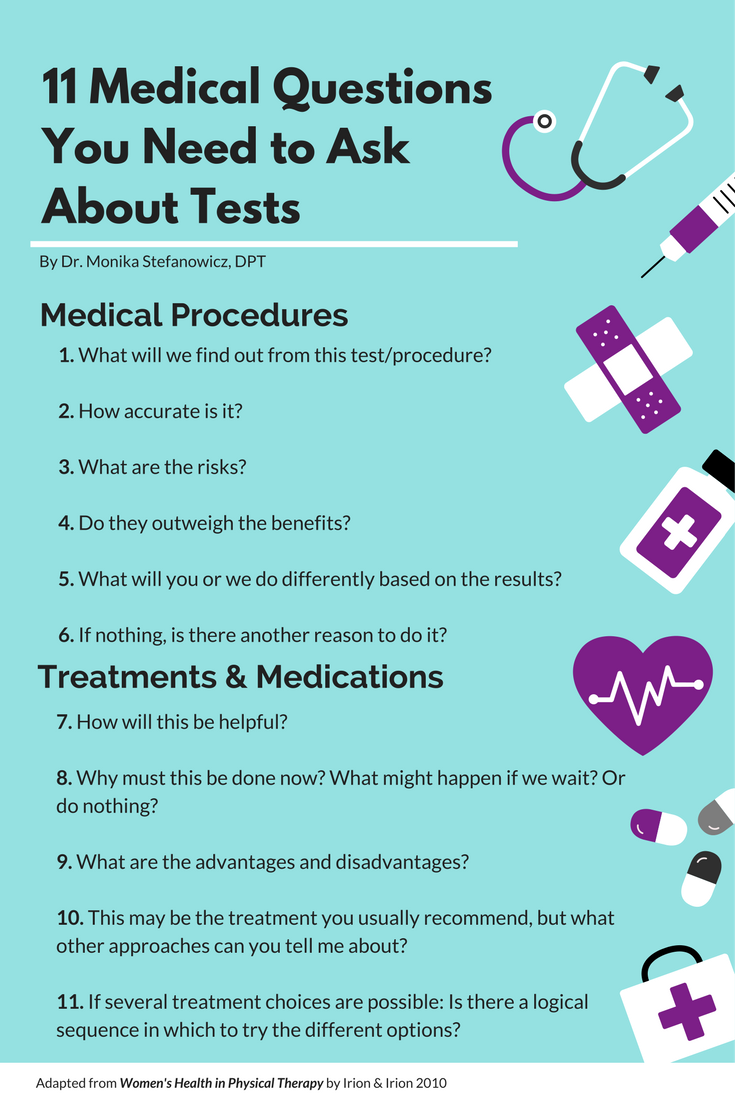This post builds off of “How to Shop Around for a Healthcare Provider." So you’ve found a great doctor! But what happens when you have an issue and need to see this awesome doctor? Will you just take his or her recommendations as the absolute truth? Picking a great team of healthcare providers is just the tip of the iceberg when it comes to being your own best advocate and getting the highest quality care.
Think about this scenario:
You go to your doctor, tell them about problem X, and they suggest you get tests A, B, and C done. Have you ever wondered why you are getting those tests instead of D, E, and F? Most people I’ve talked to (friends, family, patients, and myself included) assume that’s because A, B, and C are the best tests for problem X.
But are they? Some people are starting to wonder otherwise though. Take for example a case of low back pain. Did you know that MRIs and X-rays are not recommended to diagnose low back pain, except in dire emergencies? Actually, the majority of "degenerative" changes found on these images (e.g. bulging discs, arthritis) are normal signs of aging and do not match up with what the person is feeling.
Low back pain aside, that's just one of several examples in which medical testing and the treatments which follow as a result of these "positive" findings are unnecessary. My goal is not to make you doubt ALL medical tests and treatments, but rather to learn more about all your options and make the best choice for you!
I would urge, no beg, you to look into the tests and procedures as thoroughly as you read reviews for Amazon products. Because no matter how amazing your doctor is, it's your right as a patient to know exactly what all your options are and the implications of these tests/procedures (i.e. financial, short/long term, and risk/benefit) BEFORE you say yes.
Even with great diet and exercise, at some point, you will encounter a situation which requires further investigation. And you, being the smart and badass woman you are, want to make the most informed choice right?
So how do you do that??
Oh come on, you know I’ve got your back (pun intended!!)! Here’s a list of questions you need to ask for any test and treatment you will be getting.
Research is ever changing and can take YEARS to reach clinical practice. The average piece of research takes about 5-10 years to become standard practice in medicine. That’s why it’s so important you pick a provider who is continuously learning.
P.S. this is no excuse to let medical providers lag behind on current evidence! It’s our job as providers to identify high quality, current research to provide you the best services.
As someone seeking services from any provider, it’s your right to know all the risks and benefits of anything that’s going to be done to your body. Remember, the person providing you the service is not going to live with the consequences of what you do! Not all decisions are life-altering, but asking these questions will help you make the best decision for you in whichever situation you find yourself in.
I'm sharing this list of questions because I hear too many stories about women being mistreated, or undergoing tests which they do not need. Especially when it comes to gynecological and obstetric issues!
There are many medical practices we take as “standard” when it comes to labor and delivery, some of which are not evidence-based (looking at you episiotomies!). Make sure that you or someone you trust have these handy when you go to your appointments.










